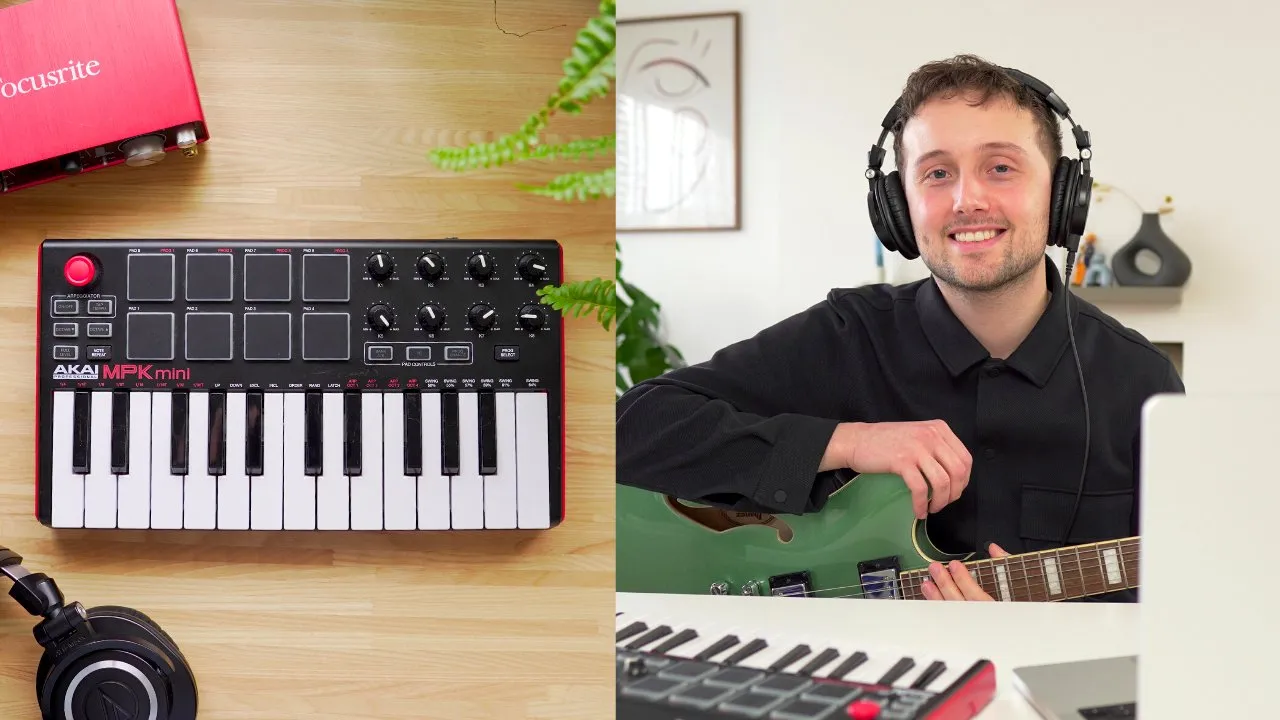
Introduction to Ear Training 
Ear training is the process of learning to recognize musical notes and intervals by ear. This introduction provides an overview of the basics of ear training and how to get started. This introduction to ear training provides an overview of the basics of recognizing musical notes and intervals by ear. Learn how to get started and develop your skills in this important area of music. ▼
ADVERTISEMENT
Course Feature
![]() Cost:
Cost:
Free
![]() Provider:
Provider:
Udemy
![]() Certificate:
Certificate:
Paid Certification
![]() Language:
Language:
English
![]() Start Date:
Start Date:
On-Demand
Course Overview
❗The content presented here is sourced directly from Udemy platform. For comprehensive course details, including enrollment information, simply click on the 'Go to class' link on our website.
Updated in [February 21st, 2023]
Learners can learn from this course about ear training, notes recognition, and developing perfect pitch. They can learn how to identify the notes C D E F G A B from the C major scale, and how to practice and repeat exercises to develop their musical ear. They can also learn how to practice on their mobile device, and how to start understanding musical language. Additionally, they can learn from the instructor's experience and the global community of students.
[Applications]
After completing this course, students will be able to confidently recognize the notes from the C major scale, start developing their "Perfect Pitch" in music, and identify the notes C D E F G A B. They will also have the opportunity to practice and repeat the exercises, which will help them to better understand musical language. Additionally, they will be able to join a global community of students and instructors, and continue to develop their musical ear.
[Career Paths]
Job Position Paths:
1. Music Teacher: Music teachers are responsible for teaching students the fundamentals of music theory, composition, and performance. They may also be responsible for helping students develop their musical skills and abilities. As technology advances, music teachers are increasingly using online tools and resources to help their students learn.
2. Music Producer: Music producers are responsible for creating and producing music for various media, such as films, television shows, and video games. They are responsible for selecting and arranging the music, as well as mixing and mastering the audio. Music producers must have a good understanding of music theory and production techniques.
3. Music Composer: Music composers are responsible for creating original music for various media, such as films, television shows, and video games. They must have a good understanding of music theory and composition techniques. Music composers must also be able to work with a variety of instruments and audio software.
4. Music Therapist: Music therapists are responsible for using music to help people with physical, emotional, and mental health issues. They must have a good understanding of music theory and be able to use music to help people cope with their issues. Music therapists must also be able to work with a variety of instruments and audio software.
Developing Trends:
1. Music teachers are increasingly using online tools and resources to help their students learn.
2. Music producers are increasingly using digital audio workstations and other software to create and produce music.
3. Music composers are increasingly using digital audio workstations and other software to create and compose music.
4. Music therapists are increasingly using digital audio workstations and other software to create and use music to help people with physical, emotional, and mental health issues.
[Education Paths]
Recommended Degree Paths:
1. Bachelor of Music: This degree program provides students with a comprehensive understanding of music theory, composition, performance, and music history. It also covers topics such as music technology, music production, and music business. This degree is ideal for those who want to pursue a career in music performance, composition, or production. Additionally, the degree provides students with the skills necessary to teach music in a variety of settings.
2. Master of Music: This degree program is designed for those who want to specialize in a particular area of music. It provides students with advanced knowledge and skills in music theory, composition, performance, and music history. Additionally, the degree covers topics such as music technology, music production, and music business. This degree is ideal for those who want to pursue a career in music performance, composition, or production.
3. Doctor of Musical Arts: This degree program is designed for those who want to specialize in a particular area of music. It provides students with advanced knowledge and skills in music theory, composition, performance, and music history. Additionally, the degree covers topics such as music technology, music production, and music business. This degree is ideal for those who want to pursue a career in music performance, composition, or production.
Developing Trends:
1. Music Technology: Music technology is becoming increasingly popular as a field of study. This includes the use of digital audio workstations, synthesizers, and other electronic music production tools. Additionally, students are learning how to use software such as Pro Tools, Logic Pro, and Ableton Live to create and produce music.
2. Music Business: Music business is becoming an increasingly popular field of study. This includes topics such as music marketing, music publishing, and music licensing. Additionally, students are learning how to use digital platforms such as Spotify, Apple Music, and YouTube to promote and monetize their music.
3. Music Education: Music education is becoming an increasingly popular field of study. This includes topics such as music theory, music history, and music pedagogy. Additionally, students are learning how to use technology to teach music in a variety of settings.
Pros & Cons

Simple and important

Recognize individual notes

Slow and repetitive

Visual presentation

Easy and effective

Fun and delightful

Free

Recognize notes quickly.

Repetition feels like a waste of time

Visual presentation could be better

Not about improving natural hearing.
Course Provider

Provider Udemy's Stats at AZClass
Discussion and Reviews
0.0 (Based on 0 reviews)
Explore Similar Online Courses

Pharmacokinetics Drug Distribution

Ultimate Freelancing Guide for Web Developers (Make money through freelance programming!)

Python for Informatics: Exploring Information

Social Network Analysis

Introduction to Systematic Review and Meta-Analysis

The Analytics Edge

DCO042 - Python For Informatics

Causal Diagrams: Draw Your Assumptions Before Your Conclusions

Whole genome sequencing of bacterial genomes - tools and applications

Orchestral Music Composition & Music Theory for Video Games

Music Theory for Songwriters: From Beginner to Producer


Start your review of Introduction to Ear Training